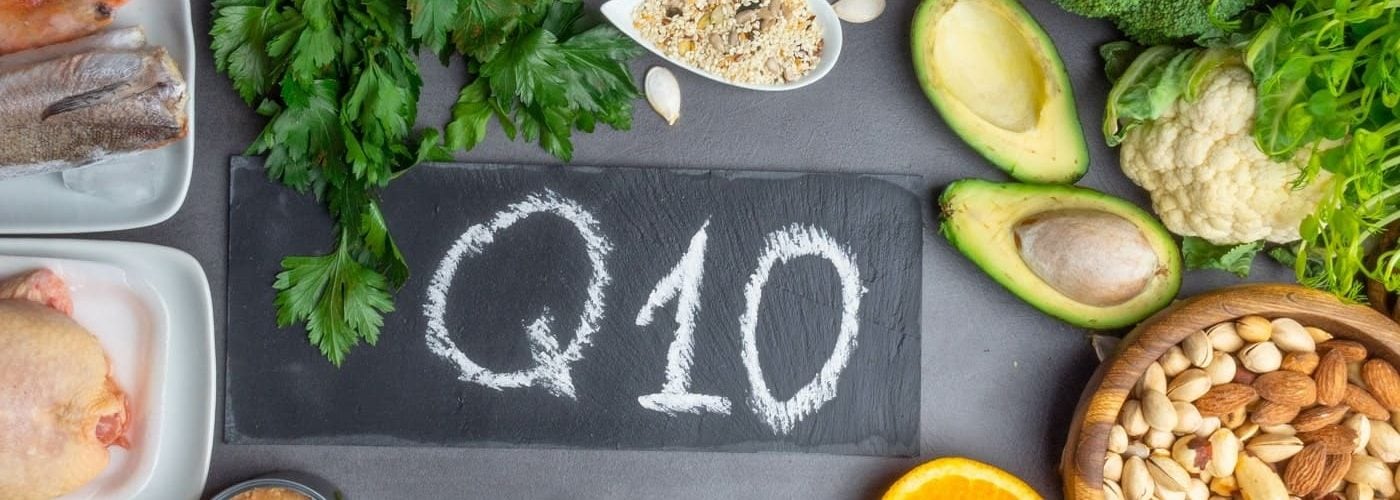
It’s well known that good nutrition is one of the most important health factors to support fertility. It’s also common knowledge that some nutritional supplements, such as folic acid, are essential to protect the embryo at early stages of its development. But it’s only just starting to emerge that some lesser-known nutrients can actually improve fertility. This is particularly important for women, whose egg quality and quantity declines with age, making the prospects of natural pregnancy in the late thirties and early forties more and more remote.
In this article, we’re taking a look at the enzyme CoQ10 or to give it its full name, Coenzyme Q10. What is it, what does it do, and what is its impact on egg quality? We also consider how you can obtain this vital nutrient from natural sources or whether it’s better to take a Coenzyme Q10 supplement, and what dosage of CoQ10 is needed for fertility improvement.
What is Coenzyme Q10 and what does it do?
CoQ10 is an antioxidant which is produced naturally by the body and is used for the growth and maintenance of cells. It is a fat-soluble antioxidant which is present in all the cells of the body, with its highest concentration in the mitochondria. The mitochondria is often described as the ‘powerhouse’ of human cells, because it produces the main source of energy which cells need to function. As well as its vital role in energy production, CoQ10’s antioxidant role is crucial in preventing the generation of free radicals and thus protecting cells against the damage they can cause.
Even though this is a naturally occurring compound, production of CoQ10 significantly decreases with age. Other factors such as oxidative stress and nutrient deficiencies can also cause its depletion.
How does CoQ10 impact on egg quality?
Scientists believe that CoQ10 has an impact on fertility in two main ways:
- It is a strong antioxidant, having the effect of protecting our reproductive cells from the damaging effects of free radicals.
- It is an important part of the chain of the electron transport system which is responsible for generating energy in the cells. With higher levels of CoQ10, this chain produces energy more quickly and efficiently. Cells can therefore function to their full potential, which has a positive impact on processes such as the production of sperm and oocyte (egg) development.
What is the evidence for this?
Several studies have investigated how CoQ10 affects egg quality. One study, published in the US National Library of Medicine, relates to how well women undergoing fertility treatment responded to ovarian stimulation. It proposed that oxidative stress could be the cause of a low response, and that treatment with CoQ10 to relieve this could have a positive impact on the ovarian response and quality of any subsequent embryos.
It found that women who had been treated with CoQ10 had a higher number of oocytes retrieved, those oocytes had a higher fertilization rate and a higher number of high-quality embryos. It also found that fewer women in the CoQ10 group had cancelled embryo transfer due to poor development of the embryos. The study concluded that, for women with poor ovarian response undergoing IVF treatment, pre-treatment with CoQ10 did improve both ovarian response and embryological parameters.
Another study, also published in the US National Library of Medicine, looked at the effects of a combination of clomiphene citrate (a commonly used ovarian stimulation treatment) and CoQ10 on women with polycystic ovarian syndrome who were resistant to clomiphene citrate when used alone. It found that the number of follicles produced was significantly higher in the group taking the combination than those on clomiphene citrate alone, that endometrial thickness was greater, ovulation rates were higher and the clinical pregnancy rate was significantly higher. It concluded that the combination of treatments improved both ovulation and clinical pregnancy rates.
What are the sources of CoQ10?
It’s understandable in the light of these findings that many men and women are interested in how to improve their levels of CoQ10 in order to protect and boost fertility. Even though this naturally occurring compound CoQ10 is found in certain foods, it would be difficult to boost levels significantly through diet alone. Many people therefore prefer the other source of CoQ10, which is dietary supplements.
Dietary sources of CoQ10
CoQ10 is found in meat and poultry, especially organ meat such as liver, eggs, oily fish such as salmon, tuna and sardines, whole grains and nuts. People with no underlying problems can gain enough for general health from a balanced diet that includes these things.
CoQ10 supplements
Dietary supplements of CoQ10 can be delivered in the form of capsules, liquids, chewable tablets and even by IV. There is also the issue of what form of the compound makes the best supplement. CoQ10 can exist as ubiquinone, its oxidized form, or in a reduced and active form which is ubiquinol. Younger people can process ubiquinone into ubiquinol relatively easily, but the process becomes less efficient as we age. For this reason some people prefer ubiquinol. However both forms have been shown to support fertility.
What is the best dosage of CoQ10 for fertility?
Coenzyme Q10 supplements can come in different strengths. Recommended amounts vary between 150 mg and 600 mg daily. However, as with all dietary supplements, it’s always a good idea to discuss it with your doctor or, in the case of fertility supplements, an expert in reproductive medicine, before taking them.
More information and advice
We have seen that studies have demonstrated how, for some people, supplements of CoQ10 can be helpful in fertility treatments such as Artificial Insemination (AI) and In Vitro Fertilisation (IVF). If you have any concerns about your fertility, it’s best to talk them through with a specialist rather than treating yourself and hoping for the best. You can easily contact us at IVI by means of our online contact form. It could be the first step to a positive outcome.





Comments are closed here.